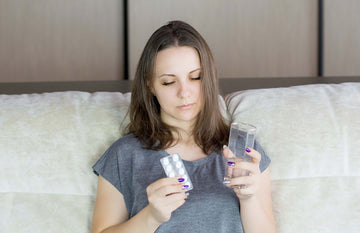Is there a cure for Hangovers? How do you prevent being hungover?
Hangovers – the dreaded aftermath of a night of revelry. Many have experienced the unpleasant effects of excessive alcohol consumption, from pounding headaches to nausea and fatigue. But amidst the misery, one question persists: Is there a cure for hangovers?
Understanding Hangovers
Before delving into potential cures, it's essential to understand what causes hangovers. A hangover is the body's reaction to overindulgence in alcohol. When you consume alcohol, it affects various systems in your body, leading to dehydration, inflammation, and disruption of sleep patterns.
Causes and Symptoms
The causes of hangovers are multifaceted, including dehydration, acetaldehyde buildup, immune system response, and gastrointestinal irritation. Symptoms can vary from person to person but commonly include headache, nausea, fatigue, sensitivity to light and sound, and cognitive impairment.
Is there a cure for Hangovers?
For decades, people have sought remedies to alleviate hangover symptoms. From drinking plenty of water to consuming greasy food, numerous folk remedies abound. However, their effectiveness is often anecdotal, and scientific evidence supporting their efficacy is limited.
Common Remedies and Myths
Some common remedies, such as drinking coffee or taking pain relievers, may provide temporary relief but do little to address the underlying causes of hangovers. Additionally, myths about hangover cures persist, leading many to try unconventional methods with dubious results.
Whats the best cure for a hangover?
Given the widespread impact of hangovers on health and productivity, the search for a definitive cure has garnered significant attention. Scientists are exploring various avenues to understand the biochemical processes underlying hangovers and develop targeted interventions.
Scientific Approach
The scientific approach to finding a cure involves studying the physiological effects of alcohol on the body and identifying potential targets for intervention. This includes researching compounds that can mitigate inflammation, improve liver function, and enhance alcohol metabolism.
Promising Research
While a definitive cure remains elusive, recent research has yielded promising findings. Experimental treatments, such as intravenous hydration therapy and antioxidant supplementation, have shown potential in reducing hangover severity and duration.
Lifestyle Changes and Alternative Therapies
In addition to medical interventions, adopting healthy lifestyle practices can help prevent hangovers. Hydrating adequately, eating a balanced diet, and getting sufficient sleep can mitigate the effects of alcohol consumption. Furthermore, alternative therapies like acupuncture and herbal supplements may offer additional support.
Conclusion: Hope on the Horizon
In conclusion, while there is no magic bullet for curing hangovers, ongoing research offers hope for the future. By understanding the complex interplay of factors contributing to hangover symptoms, scientists are inching closer to effective treatments. In the meantime, practicing moderation, staying hydrated, and prioritizing self-care can help alleviate the discomfort of hangovers and promote overall well-being.
FAQs (Frequently Asked Questions)
-
Are hangovers dangerous? Hangovers themselves are not typically dangerous, but they can impair cognitive function and judgment, increasing the risk of accidents and injury.
-
Can certain foods prevent hangovers? While eating a hearty meal before drinking may slow alcohol absorption, no specific food can prevent hangovers entirely.
-
Does age affect hangover severity? Yes, older individuals may experience more severe hangovers due to changes in metabolism and liver function.
-
Are hangovers worse with certain types of alcohol? The severity of hangovers can vary depending on factors like alcohol content, congeners, and individual tolerance levels.
-
Is there a genetic component to hangovers? Genetics can influence how individuals metabolize alcohol, affecting their susceptibility to hangovers.
Please note: Intended for educational and informative purposes only and not intended to serve as medical or professional advice. For medical attention or advice you should consult your physician or other health care professional.






